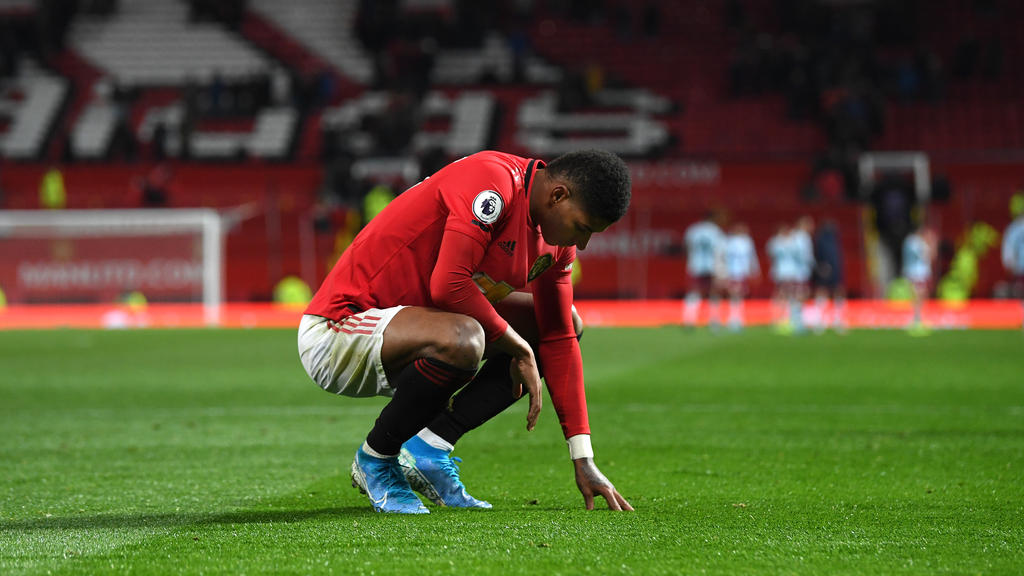Sports
Gone but not forgotten: The story of how Manchester United fell

Manchester United gave up on itself before it could give the world a chance.
Empires are built, are conquered, and are ultimately destroyed, and for Manchester United, it was a tale of not making the most of its reign after its shinning Knight, Sir Alex Ferguson had established a period of dominance.
The fall of Manchester United is not a history class that started in a day, and just as the saying ‘Rome wasn’t built in a day’ goes, Manchester United wasn’t ruined in a day as well.
In a tale of ownership uncertainty, footballing triumphs, and passionate protests, the Glazer family’s tenure at Old Trafford takes center stage.
Almost a year after announcing their intention to explore “strategic alternatives” for the club’s sale, the Glazers remain firmly in control, leaving fans disheartened.
Reports had hinted at potential buyers like INEOS and Qatari banker Sheikh Jassim, but doubts loom over the Glazers’ commitment to selling the club.

As the ownership saga unfolds, Manchester United faces a rocky start to the new season and off-field crises aplenty, with fans clamoring for more leadership from their absentee owners.
The turning point came when Malcolm Glazer, the Florida-based businessman and owner of Super Bowl champions the Tampa Bay Buccaneers, discreetly invested £9 million ($11 million) in acquiring a 2.9% stake in Manchester United through his holding company, Red Football.
By late November, the Glazer family’s stake in the club had surged to 15%.
On May 12, Malcolm Glazer expanded his ownership to almost 57% of the total shares by purchasing the holdings of major shareholders J. P McManus and John Magnier.
The Irish businessmen, known for their involvement in horse racing, had a past association with legendary United manager Sir Alex Ferguson but fell out over a dispute concerning studding rights for the horse Rock of Gibraltar, which Ferguson co-owned with Magnier’s wife.
Just four days later, Red Football further increased its stake to 75%, allowing the Glazer family to delist Manchester United from the London Stock Exchange, marking the end of its status as a public limited company (PLC).

The move drew opposition from many United fans, some of whom wore black to the FA Cup final against Arsenal, which ended in a penalty shootout defeat for the club.
The sale process reached its conclusion on June 29 as Red Football’s shareholding reached 98%, enabling the family to squeeze out the remaining shareholders.
This landmark event marked the first time in over seven decades that Manchester United found itself burdened with debt, amassing a staggering £660 million ($824 million) in debt and incurring annual interest payments of £62 million ($77 million).
The day after the sale, approximately 300 fans gathered to protest against the new owners outside Old Trafford, resulting in confrontations with police and two arrests. Notably, United legend Sir Bobby Charlton issued an apology to the Glazer family for the hostile reception they received.
Malcolm Glazer’s sons, Avram, Joel, and Bryan, were subsequently appointed as non-executive directors, while Kevin and Edward Glazer, along with daughter Darcie, joined the club’s board in 2006.
Despite on-field success that saw Manchester United clinch three consecutive Premier League titles and the 2008 Champions League trophy, the club’s debt continued to rise from £660 million ($824 million) to £716 million ($894 million).
The announcement of plans to refinance the debt triggered renewed protests among fans, who began wearing green and gold—the colors of Newton Heath—to express their opposition to the owners.
Mass protests reached a crescendo before Manchester United’s final game of the 2009-10 season against Stoke, where they narrowly missed out on the title to Chelsea.
The footballing world was left in shock when the club announced the retirement of the iconic Sir Alex Ferguson, who had been in charge since 1986 and led the club to its most successful era.
David Moyes, then manager of Everton, was chosen as Ferguson’s successor, but his tenure was marred by difficulties, leading to his dismissal as United manager.
Was he the right choice to take over the club or fill the shoes of the shinning Knight? Who even thought it was a good idea to replace Sir Alex Ferguson with David Moyes in the first place when a certain Guardiola was lurking around?

Perhaps the same person who thought bringing in Harry Maguire for a £80 million fee from Leicester City was a smart business.
Malcolm Glazer’s passing at the age of 85 marked a significant moment in Manchester United’s history.
Although a brief statement from the club extended condolences to his family, there was little mourning among the majority of United supporters.
As the Glazer family’s ownership saga continues to unfold, Manchester United finds itself navigating a precarious path, grappling with financial challenges, fan protests, and the quest to recapture its former glory on the pitch.
The future continues to remain uncertain for one of Europe’s most decorated clubs. An era gone but not forgotten.































